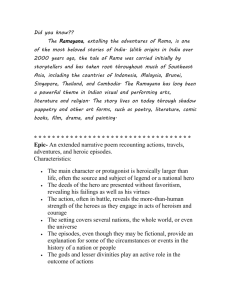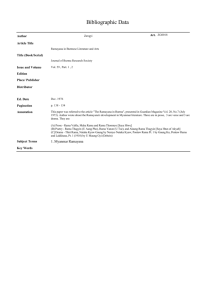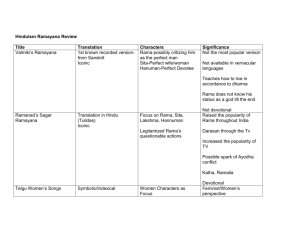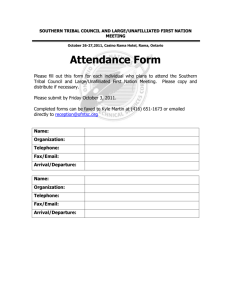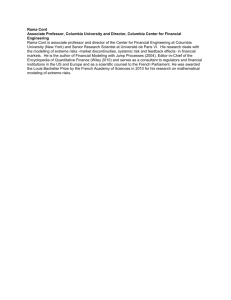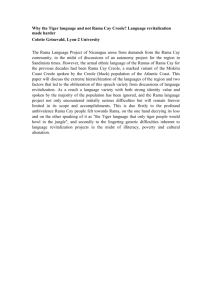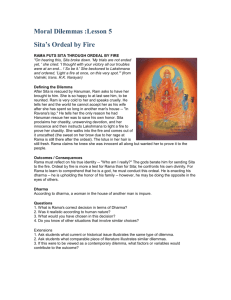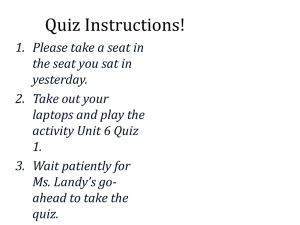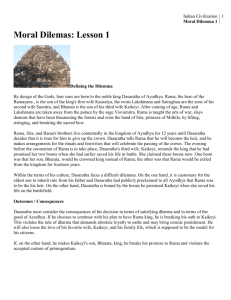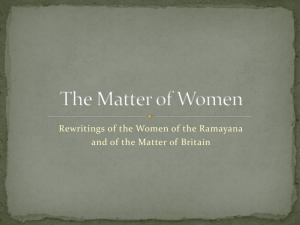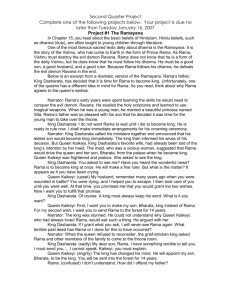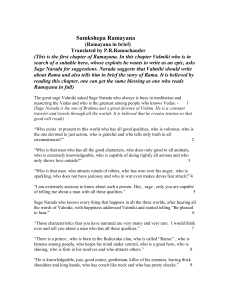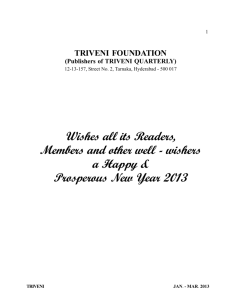Indian Philosophy Assignments - TheBurningTree
advertisement
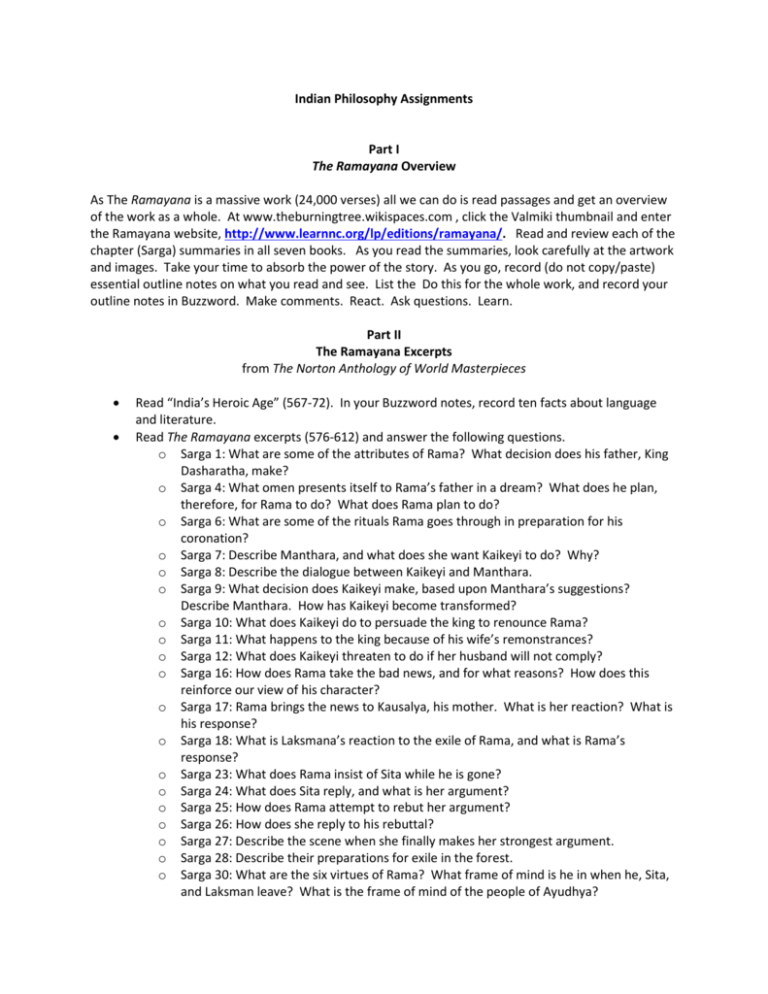
Indian Philosophy Assignments Part I The Ramayana Overview As The Ramayana is a massive work (24,000 verses) all we can do is read passages and get an overview of the work as a whole. At www.theburningtree.wikispaces.com , click the Valmiki thumbnail and enter the Ramayana website, http://www.learnnc.org/lp/editions/ramayana/. Read and review each of the chapter (Sarga) summaries in all seven books. As you read the summaries, look carefully at the artwork and images. Take your time to absorb the power of the story. As you go, record (do not copy/paste) essential outline notes on what you read and see. List the Do this for the whole work, and record your outline notes in Buzzword. Make comments. React. Ask questions. Learn. Part II The Ramayana Excerpts from The Norton Anthology of World Masterpieces Read “India’s Heroic Age” (567-72). In your Buzzword notes, record ten facts about language and literature. Read The Ramayana excerpts (576-612) and answer the following questions. o Sarga 1: What are some of the attributes of Rama? What decision does his father, King Dasharatha, make? o Sarga 4: What omen presents itself to Rama’s father in a dream? What does he plan, therefore, for Rama to do? What does Rama plan to do? o Sarga 6: What are some of the rituals Rama goes through in preparation for his coronation? o Sarga 7: Describe Manthara, and what does she want Kaikeyi to do? Why? o Sarga 8: Describe the dialogue between Kaikeyi and Manthara. o Sarga 9: What decision does Kaikeyi make, based upon Manthara’s suggestions? Describe Manthara. How has Kaikeyi become transformed? o Sarga 10: What does Kaikeyi do to persuade the king to renounce Rama? o Sarga 11: What happens to the king because of his wife’s remonstrances? o Sarga 12: What does Kaikeyi threaten to do if her husband will not comply? o Sarga 16: How does Rama take the bad news, and for what reasons? How does this reinforce our view of his character? o Sarga 17: Rama brings the news to Kausalya, his mother. What is her reaction? What is his response? o Sarga 18: What is Laksmana’s reaction to the exile of Rama, and what is Rama’s response? o Sarga 23: What does Rama insist of Sita while he is gone? o Sarga 24: What does Sita reply, and what is her argument? o Sarga 25: How does Rama attempt to rebut her argument? o Sarga 26: How does she reply to his rebuttal? o Sarga 27: Describe the scene when she finally makes her strongest argument. o Sarga 28: Describe their preparations for exile in the forest. o Sarga 30: What are the six virtues of Rama? What frame of mind is he in when he, Sita, and Laksman leave? What is the frame of mind of the people of Ayudhya? Part III Indian Philosophy’s Influence on Popular Culture These resources are posted on the class wiki for your viewing. Follow the directions on the annotations to complete your assignment. Complete all activities on Buzzword. If you wish, embed any media that you desire. Online Works to Consult at www.theburningtree@wikispaces.com “Beatles at the Maharishi Mahesh Yogi.” YouTube. Nov. 25, 2008. Web slideshow. “The Beatles in India Practicing Meditation with the Maharishi Mahesh Yogi.” YouTube. June 12, 2009. Web video. Record your impressions from both of these videos; list one Beatles (or postBeatles) song or album influenced by Hinduism. Bushan, Nyay. “India Remembers Steve Jobs.” Hollywood Reporter. 10/6/2011. Web. Gupta, Sahil Mohan. “What Steve Jobs Did in India 35 Years Ago.” NDTV. October 10, 2011. Web. James, Susan Donaldson. “Steve Jobs’s Mantra Rooted in Buddhism: Focus and Simplicity.” ABC News. Oct. 6, 2011. Web. Comment and record a brief summary of five main points from these three Steve Jobs articles. DUE DATE: ___________________
